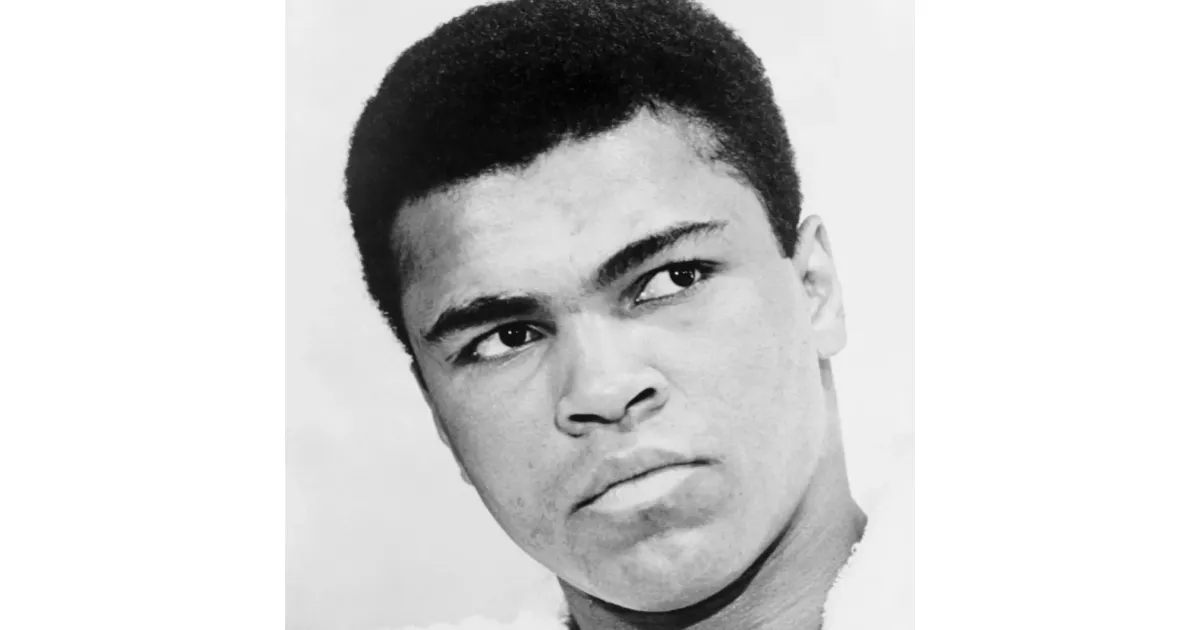How Muhammad Ali built a successful career. Explore key moments that defined the journey.
Muhammad Ali, nicknamed "The Greatest," was an iconic American professional boxer and social activist, widely considered the greatest heavyweight boxer ever. He held multiple titles, including the Ring magazine heavyweight title (1964-1970), undisputed champion (1974-1978), and WBA and Ring heavyweight champion (1978-1979). His impact extended beyond boxing, making him a global cultural icon. He was named Sportsman of the Century by Sports Illustrated and Sports Personality of the Century by the BBC in 1999.
1954: Amateur Boxing Debut
In 1954, Cassius Clay made his debut as an amateur boxer, facing Ronnie O'Keefe and winning by split decision. This marked the beginning of his amateur boxing career.
February 1957: Meeting Angelo Dundee
In February 1957, Cassius Clay met Angelo Dundee during Clay's amateur boxing career. Dundee later became Clay's trainer, replacing Archie Moore.
October 29, 1960: Professional Boxing Debut
On October 29, 1960, Cassius Clay made his professional boxing debut, winning a six-round decision against Tunney Hunsaker. This marked the beginning of his professional career.
1960: Departure from Archie Moore's Camp
In 1960, Cassius Clay left Archie Moore's camp due to disagreements over chores. Subsequently, he hired Angelo Dundee as his trainer and sought Sugar Ray Robinson as his manager, though he was rebuffed.
1960: Victory at the Rome Olympics
In 1960, Cassius Clay won a gold medal in the light heavyweight division at the Summer Olympics held in Rome, marking a significant achievement in his amateur career.
1960: Olympic Gold and Professional Debut
In 1960, at the age of 18, Muhammad Ali, then known as Cassius Clay, won a gold medal in the light heavyweight division at the Summer Olympics. Later that year, he transitioned into professional boxing.
1961: Meeting with Gorgeous George
In 1961, Cassius Clay met with professional wrestler "Gorgeous George" Wagner in Las Vegas. George influenced Clay to use trash talk to attract fans, leading Clay to become a "big-mouth and a bragger."
1962: Cameo Role in Requiem for a Heavyweight
In 1962, Ali had a cameo role in the film version of Requiem for a Heavyweight.
1962: Victory Over Archie Moore
In 1962, Cassius Clay achieved a significant victory by defeating Archie Moore, his former trainer and a veteran boxer. This win added to his growing reputation in the sport.
March 13, 1963: Fight of the Year vs. Doug Jones
On March 13, 1963, Cassius Clay fought Doug Jones at Madison Square Garden in New York. Jones staggered Clay in the first round, and Clay's unanimous decision victory was met with boos. The Ring magazine later named the fight "Fight of the Year."
1963: Top Contender for Sonny Liston's Title
By late 1963, Cassius Clay had become the top contender for Sonny Liston's heavyweight title. The fight was scheduled for February 25, 1964, in Miami Beach. Clay taunted Liston during the buildup, calling him "the big ugly bear."
1963: Undefeated Streak
By the end of 1963, Cassius Clay had amassed a record of 19-0 with 15 wins by knockout, defeating notable boxers and establishing himself as a formidable force in the boxing world.
1963: First appeared on Sports Illustrated cover
In 1963, Ali first appeared on the cover of Sports Illustrated magazine.
1963: Released I Am the Greatest Album
In 1963, Ali released an album of spoken word music titled I Am the Greatest on Columbia Records.
February 25, 1964: World Heavyweight Championship Win
On February 25, 1964, Muhammad Ali, at 22, achieved a significant upset by defeating Sonny Liston to win the world heavyweight championship. During that year, he also denounced his birth name, Cassius Clay, and formally changed his name to Muhammad Ali.
1964: Recorded Stand by Me Cover
In 1964, Ali recorded a cover version of the rhythm and blues song "Stand by Me".
1964: Nation of Islam Membership
In 1964, after winning the championship from Liston, the Nation of Islam agreed to publicize Ali's membership. Shortly afterwards on March 6, Elijah Muhammad gave a radio address that Clay would be renamed Muhammad (one who is worthy of praise) Ali (most high).
May 1965: Controversial Rematch with Liston
In May 1965, Muhammad Ali, formerly Cassius Clay, faced Sonny Liston in a controversial rematch in Lewiston, Maine. Liston was knocked down by a "phantom punch" and the fight was stopped after Liston had been down for about 20 seconds, with Ali declared the winner by knockout.
November 22, 1965: Title Defense Against Floyd Patterson
On November 22, 1965, Muhammad Ali defended his title against former heavyweight champion Floyd Patterson. Ali mocked Patterson, calling him "The Rabbit," and won by a technical knockout after 12 rounds.
March 29, 1966: Fight Sanction Refused
Muhammad Ali and Ernie Terrell had agreed to a fight on March 29, 1966, in Chicago. However, after Ali was reclassified by the draft board and indicated he would refuse to serve in the Vietnam War, the Illinois Athletic Commission refused to sanction the fight.
1966: Fight against George Chuvalo
Ali's 1966 fight against George Chuvalo was the subject of the 2003 documentary film The Last Round: Chuvalo vs. Ali.
1966: Popularized "Different strokes for different folks"
In 1966, Ali popularized the quote "Different strokes for different folks", which later inspired the title of the 1967 Syl Johnson song "Different Strokes".
1966: Pledged Donation to UNCF
In late 1966, Ali pledged to donate a total of $100,000 to the UNCF and paid $4,500 per closed circuit installation at six HBCUs so they could watch his fights.
February 6, 1967: Ali vs. Terrell Fight
On February 6, 1967, Muhammad Ali fought Ernie Terrell in Houston. Terrell, considered Ali's toughest opponent since Liston, was unbeaten in five years. Ali won a unanimous 15-round decision in a fight marked by Ali's taunting of Terrell.
1967: Donation to United Negro College Fund
In 1967, Ali became the largest single black donor to the United Negro College Fund with a $10,000 donation ($78,000 in 2020 USD).
1967: Syl Johnson song "Different Strokes" released
In 1967, Ali inspired the title of the Syl Johnson song "Different Strokes", which became one of the most sampled songs in pop music history.
1968: Paved the way for The Last Poets
In 1968, Ali played a role in the shaping of the black poetic tradition, paving the way for The Last Poets.
1969: Ali Films Sparring Match Against Rocky Marciano
In 1969, Muhammad Ali filmed sparring matches against retired champion Rocky Marciano for a privately staged fantasy fight.
1969: Starred in Buck White
In 1969, during his exile from boxing, Ali starred in the short-lived Broadway musical, Buck White.
1969: Inspiration from Gorgeous George
In a 1969 interview, Muhammad Ali stated that he met with professional wrestler "Gorgeous George" Wagner in Las Vegas in 1961. George told him that trash talk would earn him fans who either wanted to see him win or lose, so Clay transformed himself into a self-described "big-mouth and a bragger."
August 11, 1970: Ali Granted Boxing License in Atlanta
On August 11, 1970, Muhammad Ali was granted a license to box by the City of Atlanta Athletic Commission, paving the way for his comeback.
October 1970: End of Ali's Boxing Ban
In October 1970, Muhammad Ali's boxing ban came to an end, after he was unable to fight since March 1967.
1970: Estimated fight purse earnings between 1970 and 1978
By 1978, Ali's total fight purse earnings were estimated to be nearly $60 million (inflation-adjusted $391 million), including an estimated $47.45 million grossed between 1970 and 1978.
1970: Paved the way for Gil Scott-Heron
In 1970, Ali played a role in the shaping of the black poetic tradition, paving the way for Gil Scott-Heron.
1970: Ali Honored with Martin Luther King Award
In 1970, Muhammad Ali was honored with the annual Martin Luther King Award by Ralph Abernathy, who recognized him as a "living example of soul power", with Coretta Scott King adding that Ali was "a champion of justice and peace and unity".
1970: Fantasy Fight Against Rocky Marciano Shown in Movie Theaters
In 1970, edited versions of the simulated fight between Muhammad Ali and Rocky Marciano were shown in movie theaters, with differing outcomes for U.S. and European versions.
March 8, 1971: Ali vs Frazier Fight of the Century
On March 8, 1971, Muhammad Ali and Joe Frazier's first fight, held at Madison Square Garden, was dubbed the "Fight of the Century" due to the immense excitement surrounding the bout between two undefeated fighters.
1971: Ali and Wilt Chamberlain Fight Cancelled
In 1971, Muhammad Ali influenced Wilt Chamberlain into calling off a scheduled boxing match by taunting him, leading Chamberlain to abandon what the Los Angeles Lakers owner termed "this boxing foolishness."
1971: Ali begins Training in Pennsylvania
In 1971, Muhammad Ali started training at a farm near Reading, Pennsylvania.
1971: Ali's Conviction Overturned
In 1971, Muhammad Ali's conviction for refusing to be inducted into the armed forces was overturned.
1972: Appeared in Black Rodeo
In 1972, Ali appeared in the documentary film Black Rodeo, riding both a horse and a bull.
1972: Second Fight with Floyd Patterson
In 1972, Muhammad Ali arranged a second fight with the financially struggling Floyd Patterson to help him earn money to pay a debt to the IRS, demonstrating Ali's generosity and support for his fellow boxer.
1972: Ali Establishes Training Camp in Deer Lake
In 1972, Muhammad Ali established his training camp in Deer Lake, Pennsylvania, where he trained for all his fights until the end of his career.
1972: Ali Wins Six Fights
In 1972, Muhammad Ali won a total of six fights after fighting Jerry Quarry, and had a second bout with Floyd Patterson, and faced Bob Foster.
1973: Ali Wears "People's Choice" Robe
In 1973, Muhammad Ali wore a "People's Choice" robe given to him by Elvis Presley during two bouts he had with Joe Bugner and Ken Norton.
January 28, 1974: Ali vs. Frazier Rematch at Madison Square Garden
On January 28, 1974, Muhammad Ali had a rematch with Joe Frazier at Madison Square Garden, after Frazier had recently lost his title to George Foreman.
October 30, 1974: The Rumble in the Jungle
On October 30, 1974, Muhammad Ali fought against heavyweight champion George Foreman in Kinshasa, Zaire, in a bout nicknamed The Rumble in the Jungle. At the time, almost no one gave Ali a chance of winning.
1974: Television Viewership Records
From 1974, Muhammad Ali's fights were some of the world's most-watched television broadcasts, setting television viewership records.
1974: World Champion Boxer
In 1974, Ali was the subject of numerous creative works including books, films, music, video games, and TV shows. Several of his fights were watched by an estimated 1–2 billion viewers between 1974 and 1980.
October 1, 1975: Thrilla in Manila
On October 1, 1975, Ali fought Joe Frazier in the "Thrilla in Manila". Ali started aggressively but tired, employing the "rope-a-dope" strategy. Frazier attacked relentlessly, but Ali landed blows in the 12th round, impairing Frazier's vision. Ali dominated rounds 13 and 14. Frazier's trainer stopped the fight after the 14th round, awarding Ali a TKO victory.
1975: Published The Greatest: My Own Story
In 1975, Ali's autobiography, The Greatest: My Own Story, co-written with Richard Durham, was published.
February 2, 1976: Ali Defeats Coopman
On February 2, 1976, Muhammad Ali defeated Jean-Pierre Coopman by a 5th round knockout, though the WBC Heavyweight title was not at stake in this particular fight.
April 30, 1976: Ali Wins Against Young
On April 30, 1976, Ali fought Jimmy Young and won a controversial unanimous decision. Howard Cosell commented on Ali's off timing, and Ali admitted to conserving energy for Ken Norton.
May 24, 1976: Ali Defeats Dunn
On May 24, 1976, Ali defeated Richard Dunn by a 5th round technical knockout using the "Accupunch" taught to him by Taekwondo Grandmaster Jhoon Rhee, learned from Bruce Lee. This marked the last knockout victory in Ali's boxing career.
June 1, 1976: Confrontation with Gorilla Monsoon
On June 1, 1976, Ali confronted professional wrestler Gorilla Monsoon in the ring at a World Wide Wrestling Federation show in Philadelphia Arena, where Monsoon put Ali in an airplane spin and dumped him to the mat.
June 26, 1976: Ali vs. Inoki Exhibition Bout
On June 26, 1976, Ali participated in an exhibition bout in Tokyo against Antonio Inoki. Due to restricted rules, Ali only landed two jabs while Inoki's kicks caused blood clots and an infection, almost resulting in amputation of Ali's leg. The match was declared a draw and is now considered an influential mixed-style fight.
September 1976: Ali Wins Controversial Decision Against Norton, Announces Retirement
In September 1976, Ali fought Ken Norton for the third time at Yankee Stadium and won a controversial decision. Ringside commentators favored Norton. Following the fight, Ali announced his retirement from boxing to practice his faith, having converted to Sunni Islam.
1976: Grammy Nomination for Children's Recording
In 1976, Ali received a Grammy nomination for "Best Recording for Children" with his spoken word novelty record, The Adventures of Ali and His Gang vs. Mr. Tooth Decay.
1976: Release of 'The Adventures of Ali and His Gang vs. Mr. Tooth Decay'
In 1976, Muhammad Ali released "The Adventures of Ali and His Gang vs. Mr. Tooth Decay," another spoken-word album that received a Grammy Award nomination. This project highlighted his creative endeavors beyond boxing.
May 1977: Ali Beats Evangelista
In May 1977, Ali returned to boxing and beat Alfredo Evangelista.
1977: Dedication to Helping People
In 1977, Ali stated that after retirement, he would dedicate his life to helping people, charitable causes, uniting people, and making peace.
1977: The Greatest Film Adaptation
In 1977, Ali's book The Greatest was adapted into a film, The Greatest, where he played himself.
1978: Estimated fight purse earnings
By 1978, Ali's total fight purse earnings were estimated to be nearly $60 million (inflation-adjusted $391 million), including an estimated $47.45 million grossed between 1970 and 1978.
1978: Starred in Freedom Road
In 1978, Ali starred in the film Freedom Road as Gideon Jackson, a former slave and Union soldier elected to the U.S. Senate in 1870s Virginia.
1978: Visited Bangladesh and Participated in The Longest Walk
In 1978, following his loss to Spinks and before winning the rematch, Ali visited Bangladesh and received honorary citizenship. In the same year, he participated in The Longest Walk, a protest march in the United States in support of Native American rights.
1978: Received accolades in Louisville
In 1978, shortly after becoming heavyweight champion of the world for the third time, and three years before his permanent retirement, Ali received a round of accolades in his hometown of Louisville. In September 1978, at a tribute ceremony held at Fairgrounds Stadium, then-Governor of Kentucky Julian Carroll proclaimed 1978 the "Year of Ali" and presented to Ali the Governor's Distinguished Service Award. In November 1978, the Louisville Board of Aldermen voted to rename downtown thoroughfare Walnut Street to Muhammad Ali Boulevard.
July 27, 1979: Ali Announces Short-Lived Retirement
On July 27, 1979, Muhammad Ali announced his retirement from boxing, but his retirement was short-lived. He announced a comeback to fight Larry Holmes for the WBC belt, motivated by a need for money.
July 31, 1980: NAC Accepts Mayo Clinic's Opinion
On July 31, 1980, the Nevada Athletic Commission (NAC) accepted the Mayo Clinic's opinion that Muhammad Ali was fit to fight, paving the way for his return to the ring.
October 2, 1980: Ali Fights Holmes
On October 2, 1980, Muhammad Ali fought Larry Holmes at Caesars Palace in Las Vegas. Holmes dominated the fight, and Angelo Dundee stopped it after the tenth round. It was Ali's only loss by stoppage.
1980: Estimated fight purse earnings
By 1980, Ali's total fight purse earnings were estimated to be up to $70 million (inflation-adjusted $339 million).
1980: World Champion Boxer
In 1980, Ali was the subject of numerous creative works including books, films, music, video games, and TV shows. Several of his fights were watched by an estimated 1–2 billion viewers between 1974 and 1980.
1980: Television Viewership Records
Until 1980, Muhammad Ali's fights were some of the world's most-watched television broadcasts, setting television viewership records.
January 19, 1981: Talked Man Down from Ledge
On January 19, 1981, in Los Angeles, Ali talked a suicidal man down from jumping off a ninth-floor ledge.
December 11, 1981: Ali's Last Fight
Despite pleas to retire, on December 11, 1981, Ali fought Trevor Berbick in Nassau, Bahamas, losing a ten-round decision. This was his final fight.
1981: End of Training at Deer Lake Camp
In 1981, Muhammad Ali ended his training at Deer Lake camp at the end of his career.
1981: Retirement from Boxing
In 1981, Muhammad Ali retired from professional boxing. Following his retirement, he dedicated his time to religion, philanthropy, and activism.
June 12, 1983: Ali vs. Semenko Exhibition Match
On June 12, 1983, Ali fought NHL player Dave Semenko in an exhibition match. The match was officially a draw after three rounds, with reports indicating Ali was mostly toying with Semenko.
March 31, 1985: Special Guest Referee at WrestleMania
On March 31, 1985, Ali served as the special guest referee for the main event of the inaugural WrestleMania.
1986: Mike Tyson Breaks Heavyweight Records
In 1986, Mike Tyson broke both the youngest heavyweight champion and fastest boxer to win championship records when he defeated Trevor Berbick to win the heavyweight title at age 20.
1989: Participated in Indian charity event
In 1989, Ali participated in an Indian charity event with the Muslim Educational Society in Kozhikode, Kerala, along with Bollywood actor Dilip Kumar.
1990: Traveled to Iraq and negotiated hostage release
In 1990, prior to the Gulf War, Ali traveled to Iraq and met with president Saddam Hussein in an attempt to negotiate the release of American hostages. Ali secured the release of the hostages, in exchange for promising Hussein that he would bring America "an honest account" of Iraq. Despite arranging the hostages' release, he received criticism.
1991: Release of Biography Muhammad Ali: His Life and Times
In 1991, the oral history biography, Muhammad Ali: His Life and Times, by Thomas Hauser was released.
1992: Incorporation of G.O.A.T. Inc.
In 1992, Lonnie Williams incorporated Greatest of All Time, Inc. (G.O.A.T. Inc) to manage and license Muhammad Ali's intellectual properties for commercial use, serving as vice president and treasurer.
1994: Campaign to aid Rwandan refugees
In 1994, Ali campaigned to the United States government to come to the aid of refugees afflicted by the Rwandan genocide, and to donate to organizations helping Rwandan refugees.
1995: Sports Diplomacy Mission to North Korea
In 1995, Ali led a group of Japanese and American professional wrestlers, including his 1976 opponent Antonio Inoki, on a sports diplomacy mission to North Korea and was guest of honor at the Collision in Korea wrestling event.
1998: Began working with Michael J. Fox for Parkinson's awareness
In 1998, Ali began working with actor Michael J. Fox, who has Parkinson's disease, to raise awareness and fund research for a cure.
2000: Worked with the Michael J. Fox Foundation for Parkinson's Research
In 2000, Ali worked with the Michael J. Fox Foundation for Parkinson's Research to raise awareness and encourage donations for research.
2001: Response to September 11 Attacks
After the September 11 attacks in 2001, Ali stated that "Islam is a religion of peace" and condemned the actions of those who caused the destruction.
November 17, 2002: Visited Afghanistan as the "U.N. Messenger of Peace"
On November 17, 2002, Ali visited Afghanistan as the "U.N. Messenger of Peace". He was in Kabul for a three-day goodwill mission as a special guest of the UN.
2002: Joint appearance with Michael J. Fox before Congress
In 2002, Ali and Michael J. Fox made a joint appearance before Congress to push the case for Parkinson's research.
November 2005: Opened the Muhammad Ali Center in Louisville
In November 2005, Ali and his wife Lonnie Ali opened the $54 million, 93,000 ft, non-profit Muhammad Ali Center in downtown Louisville. The center focuses on core themes of peace, social responsibility, respect, and personal growth.
2006: Sale of G.O.A.T. Inc.
In 2006, Greatest of All Time, Inc. (G.O.A.T. Inc), managed by Lonnie Williams, was sold.
August 2013: The Trials of Muhammad Ali documentary opened in Manhattan
In August 2013, The Trials of Muhammad Ali, a documentary focusing on Ali's refusal of the draft during the Vietnam War, opened in Manhattan. Also in 2013, a made-for-TV movie titled Muhammad Ali's Greatest Fight dramatized the same aspect of Ali's life.
December 2015: Response to Paris Attacks
In December 2015, after the November 2015 Paris attacks, Ali condemned the violence of so-called Islamic jihadists and urged Muslims to stand up against those who use Islam for their personal agenda.
2020: $10,000 in 1967 equivalent to $78,000 in 2020.
In 2020, the equivalent of Ali's $10,000 donation in 1967 to the United Negro College Fund would be $78,000.
2024: Inducted into WWE Hall of Fame
In 2024, Ali was inducted into the WWE Hall of Fame by The Undertaker.
Mentioned in this timeline

Basketball is a team sport played on a rectangular court...

Michael Jordan often known as MJ is a businessman and...

Bill Clinton the nd U S President - served as...
World Wrestling Entertainment WWE is a prominent American professional wrestling...
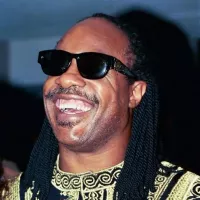
Stevie Wonder born Stevland Hardaway Morris is a highly influential...
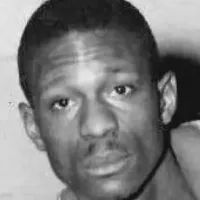
Bill Russell was a dominant American professional basketball player primarily...
Trending

6 months ago Celebrating Chris Hemsworth's Birthday: Iconic Roles from Thor to Extraction and Beyond

9 months ago The Weeknd's Late Night Interview Debut with Fallon, Bart Simpson's Fallon Ignorance.

3 months ago Ghislaine Maxwell Seeks Trump Commutation; Prison Perks Investigated; Giuffre Family Reacts

John Collins born is a Scottish former professional football player and current manager A midfielder by trade Collins notably played...
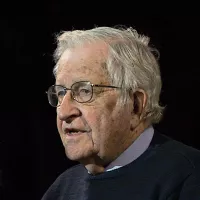
Noam Chomsky is a highly influential American linguist philosopher cognitive scientist and political activist He revolutionized linguistics with his theory...
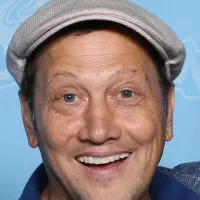
Rob Schneider is an American actor and comedian best known for his time as a cast member on Saturday Night...
Popular

Kid Rock born Robert James Ritchie is an American musician...

Melania Trump a Slovenian-American former model has served as First...

XXXTentacion born Jahseh Dwayne Ricardo Onfroy was a controversial yet...

Thomas Douglas Homan is an American law enforcement officer who...

Instagram is a photo and video-sharing social networking service owned...
The Winter Olympic Games a major international multi-sport event held...
